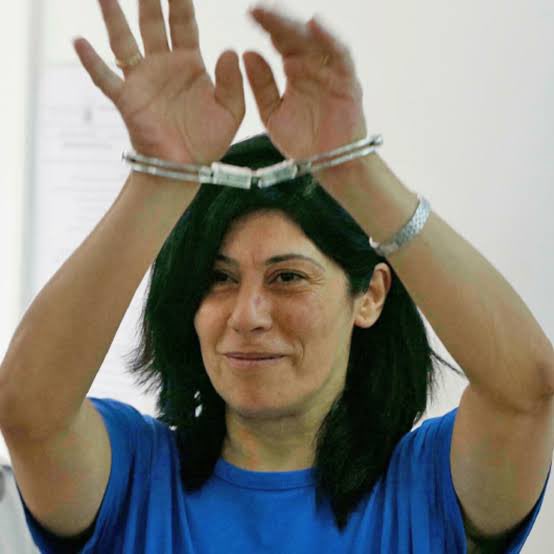
Freed Palestinian leader, politician, and activist Khalida Jarrar said Israeli authorities do not treat Palestinian prisoners as human beings, describing the conditions in jails as “the worst and most difficult since the occupation of the West Bank in 1967.”
In the early hours of Monday, Israel released 90 Palestinian prisoners under a ceasefire and prisoner swap agreement that suspended its genocidal war on the Gaza Strip, which has claimed more than 47,000 lives since Oct. 7, 2023, and left the enclave in ruins.
Jarrar, who was held in administrative detention in December 2023, was among those set free. It came after three female Israeli hostages held by the Palestinian group Hamas in Gaza were released. Administrative detention is a policy that allows Israeli authorities to hold individuals without charge or trial.
Speaking to Anadolu, the leader of the Popular Front for the Liberation of Palestine, who has been arrested multiple times, said Israeli prison conditions “have never been as harsh as they are now, be it the repeated assaults or constant use of tear gas.”
Describing the state of prisons in Israel, Jarrar said the Palestinians endure “poor quality and insufficient quantity of food, as well as the solitary confinement policy practiced by the occupation authorities.”
“I spent six months in solitary confinement,” she said, adding that “many Palestinians are held in solitary cells in very harsh conditions.”
The senior politician said what is happening in Israeli prisons is a result of policies by the current Israeli government and Itamar Ben-Gvir, the far-right national security minister who resigned after the Gaza truce, trying “to deal with the prisoners as if they are not humans.”
As Jarrar, 61, was led through a cheering crowd, it could be seen her once-dark hair had grayed, and she looked exhausted.
“We were subjected to extreme harshness and physical assault in a deliberate and intentional attempt to humiliate and demean us,” she said.
The lawmaker stressed that the prisoners’ cause is “an integral part of our people’s causes,” and all Israeli policies against the prisoners must be confronted nationally.
Jarrar was elected as a member of the Palestinian Legislative Council in the last parliamentary elections held in 2006. She has served as the head of the assembly’s prisoners commission and was also appointed to the Palestinian committee for follow-up with the International Criminal Court.
Jarrar was arrested by the Israeli army several times on accusations of affiliation to an “outlawed” party and for her role in activities supporting Palestinian detainees in Israeli jails.
According to prisoners’ affairs groups, she was repeatedly mistreated by prison guards, affecting her well-being.
Estimates put the number of Palestinian detainees at Israeli prisons at over 11,000.
Hamas released the three Israeli captives under the ceasefire deal, which took effect on Sunday.
The three-phase deal includes a prisoner exchange and sustained calm, aiming for a permanent truce and the withdrawal of Israeli forces from Gaza.











